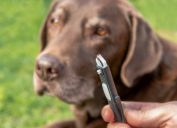8 Things You Should Never Do at the Dog Park, Vets Say
These helpful tips can help keep your pup's playtime safe and enjoyable.
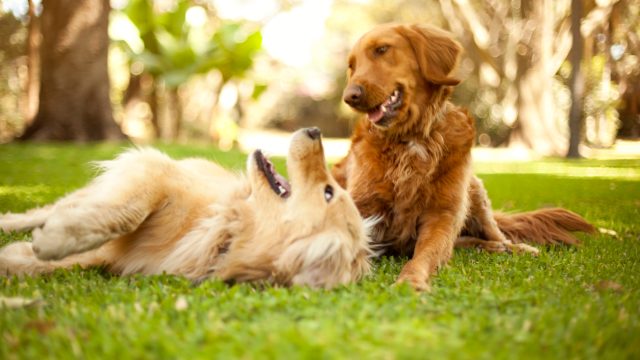
Anyone with a canine companion knows that a trip to the dog park can be the highlight of your pet's day. It can not only be the perfect way for your pup to socialize, get in some exercise, and get some fresh air out of the house, but it can be just as rewarding and relaxing for owners, too. However, if you're an active participant in your community's canine social circles, there are a few mistakes you'll want to avoid. Read on to see which things vets say you should never do at the dog park.
READ THIS NEXT: The 7 Best Dogs for Beginners, Vets Say.
1
Never visit during peak hours.
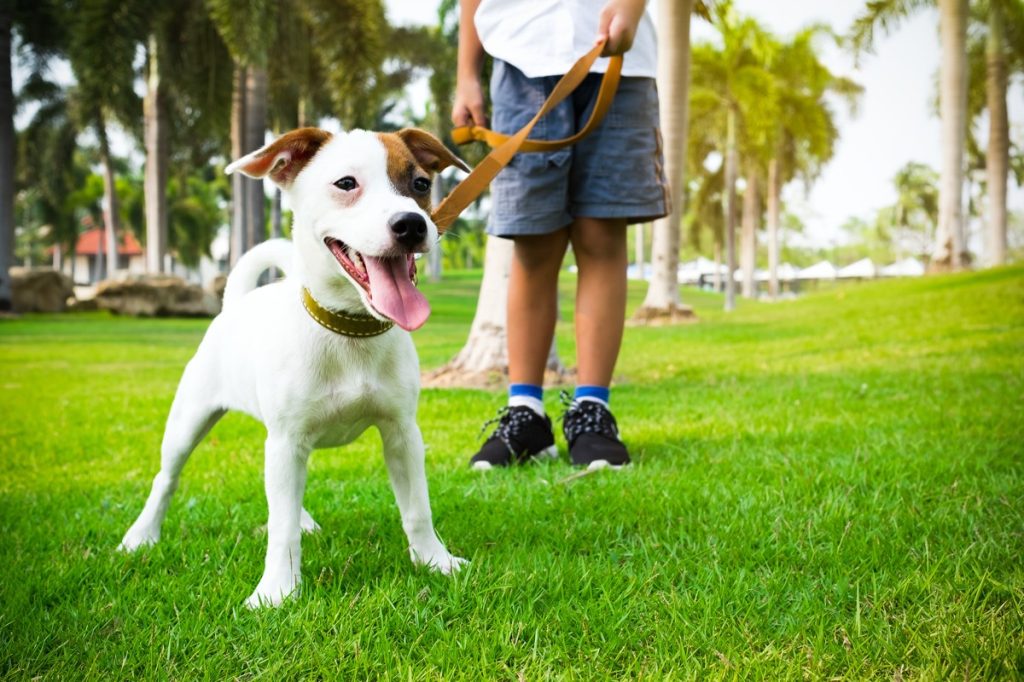
Dog parks have a way of becoming neighborhood hubs for pet owners. However, sometimes less can be more when it comes to ensuring a fun, safe experience for everyone involved.
"Avoid going to the dog park during the busiest hours—usually after work hours on the weekdays—and instead try to go during off hours," Georgina Ushi Phillips, DVM, practicing veterinarian and Florida-based writer with NotABully.org, tells Best Life. "More dogs means a higher chance of conflict, and I routinely see dogs that need laceration repair as a result of a dog park scuffle."
2
Never feed a strangers' dog treats.
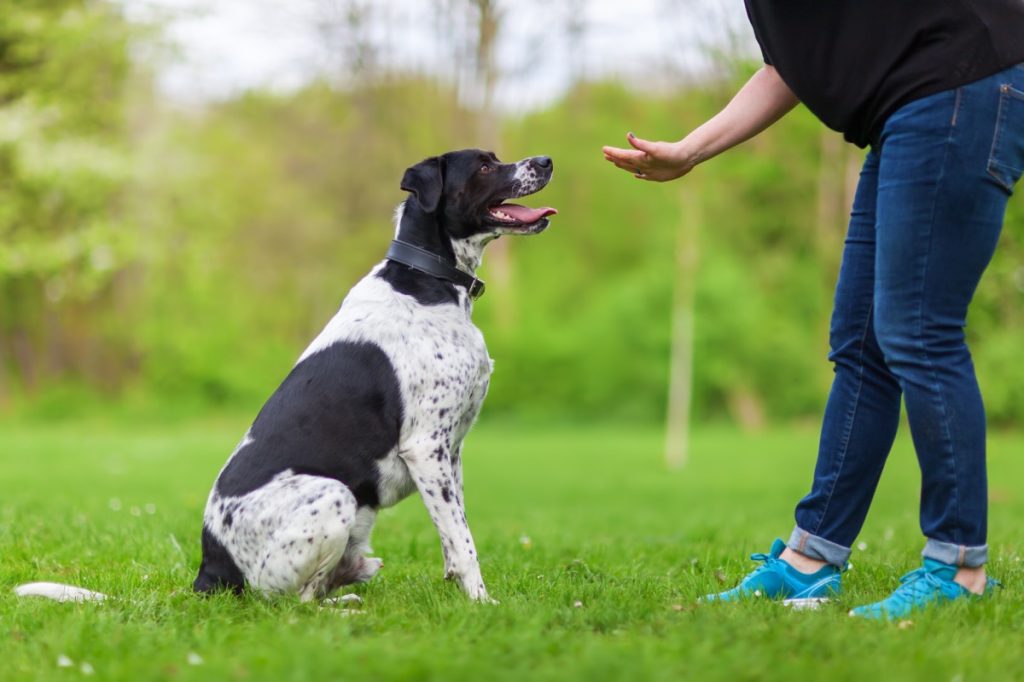
There's an undeniably deep shared joy between a dog and someone who's just given them a treat. Many businesses in dog-friendly cities and neighborhoods have even made it a habit of supplying patrons' pets with snacks. However, experts warn the dog park may not be the best place to start doling out the Milk Bones.
"Even if you do it with the best intentions in the world, giving treats to other dogs without consulting their owners first is a resounding 'no' as you don't know if the dog is under some strict diet, has some sort of food allergy, or the owners simply don't feel comfortable about it," Sabrina Kong, DVM, a veterinarian at WeLoveDoodles, tells Best Life. "You may feel tempted to do so, but avoid giving treats to other dogs at all costs since it could do more harm than good on some occasions."
READ THIS NEXT: 5 Low-Maintenance Dogs You Barely Need to Walk.
3
Never let your dog near standing water.
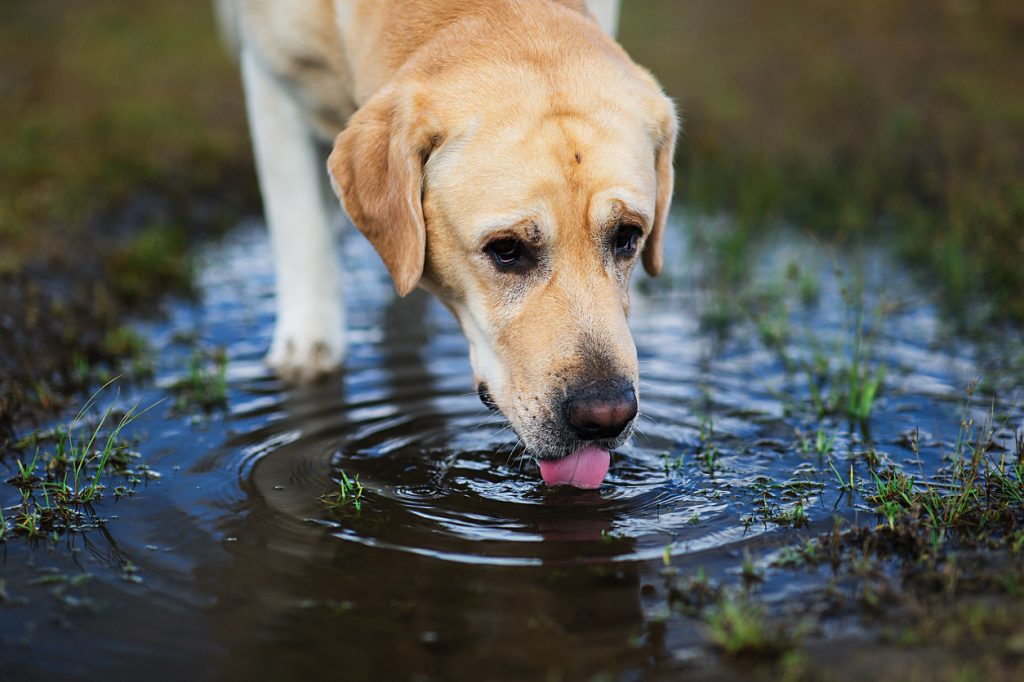
Whether it's just their nose or their entire body, some dogs love nothing more than to dive right into the nearest body of water they see. That may be fine when they're playing around at home or cooling down during a beach walk. But if your local dog park has a lot of puddles or a questionable-looking communal pool, it could be a potential health risk for your pet.
"Standing water is already something you should avoid with your dog. But standing water at the dog park is exposed to dozens of canines every day, which turns it into a breeding ground for a variety of bacteria, including leptospirosis—often simply called lepto," says Phillips
"Leptospirosis is transmitted via the urine of dogs and other animals, and many dog owners already know that dogs can't resist taking a few sips from a random puddle. So if there's standing water at the park, it's best to skip that day," she advises.
4
Never bring an unvaccinated puppy.
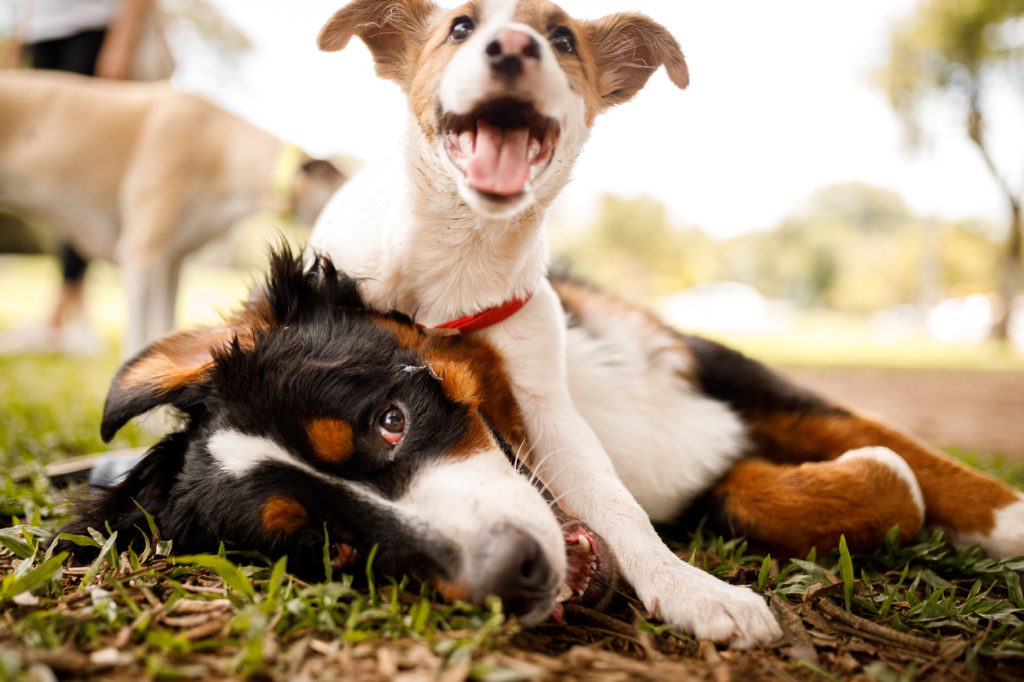
Taking on the responsibility of a new dog can be a lot of work—especially when it's a puppy. Their early years require plenty of patient training, which includes the socialization that the dog park can eventually provide. However, experts caution that there's still one important part of a pup's youth they need to undergo before they can partake in park play.
"When we get a new puppy, of course we want to bring it to the park and let it enjoy the outdoors and play with friends. Unfortunately, however, some of the diseases we vaccinate our dogs against—parvovirus being the worst offender—are potentially deadly to a puppy," says Patrik Holmboe, head veterinarian for Cooper Pet Care.
"Parvovirus is caught via the dog eating contaminated feces or other material from infected dogs—and a dog park is unfortunately a prime place to pick this up. So until your puppy is fully vaccinated, usually around 12 to 16 weeks of age, keep socialization practice limited to dogs you know are vaccinated themselves," he suggests.
For more pet advice delivered straight to your inbox, sign up for our daily newsletter.
5
Never bring a potentially sick dog to the park.
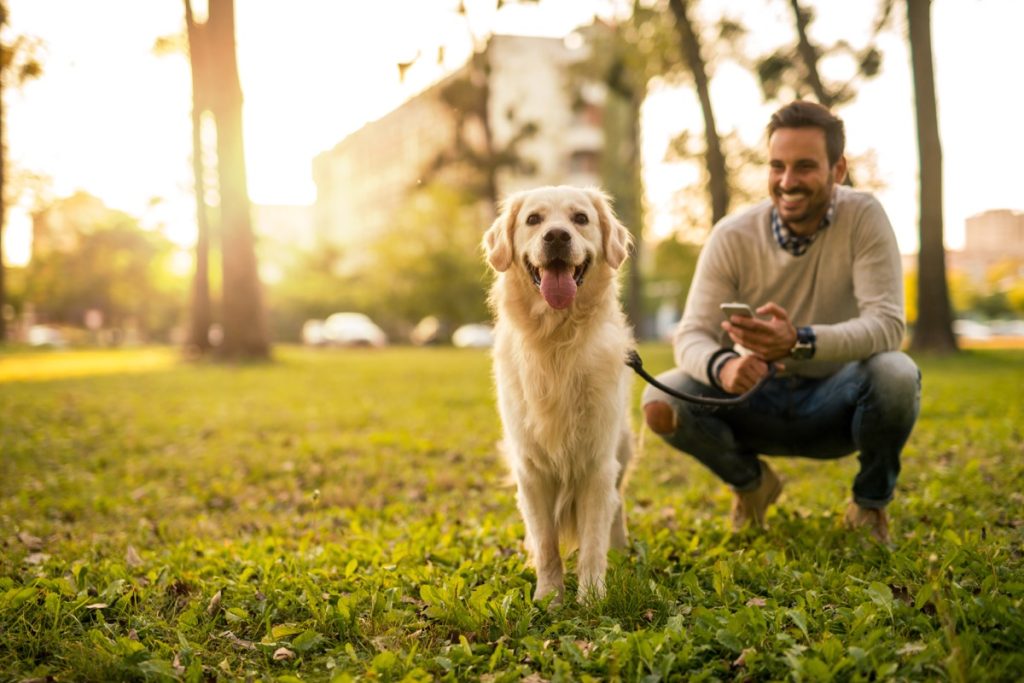
The COVID-19 pandemic drastically shifted public opinion on showing up to work or a get-together with the sniffles. According to experts, the same rule should apply to your pets.
"Never bring your pet to a dog park or dog social gathering if they are not feeling 100 percent," Amy Attas, VMD, an award-winning veterinarian with home practice City Pets, tells Best Life. "Some respiratory infections and stomach upsets can be infectious and contagious to other dogs. Even if the health issue is not contagious, resting is better than having a play date if your dog is not feeling well."
6
Never lose focus on what your dog is doing.
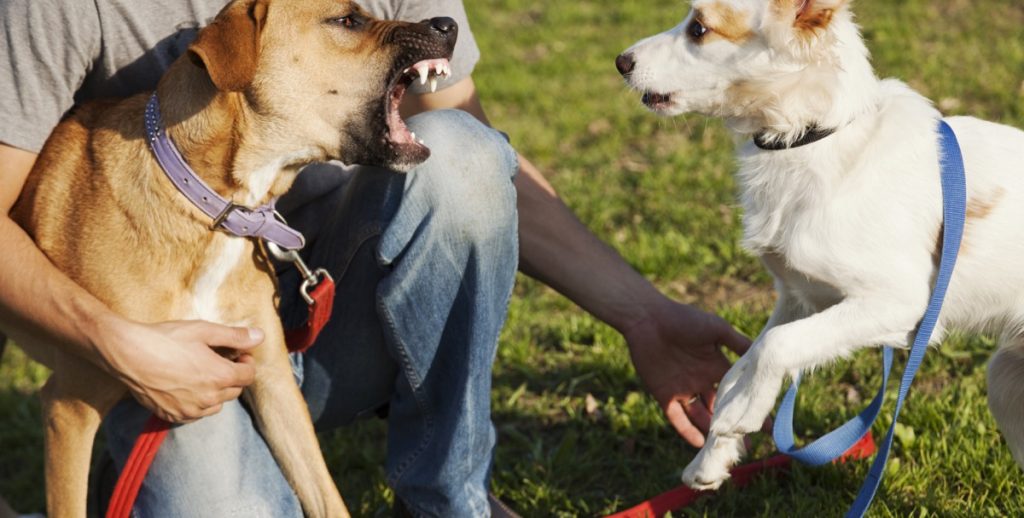
The dog park can be as much fun for pet parents as the dogs themselves. But while the environment is typically friendly, things can take a turn in an instant, making your undivided attention essential to keeping everything safe.
"It's very easy to get distracted by other dogs and dog owners at the dog park," says Erika Barnes, founder and CEO of Pet Smitten. "You can find yourself staring at another very cute puppy or having a chat with another dog owner, but this means you've taken your eyes off of your own dog. Dogs are like mischievous toddlers who love nothing more than causing trouble with other dogs. Try not to get distracted by things like your phone or other people," she suggests.
And it's not just your own pet's behavior you need to be concerned about while they're in public. "Never assume everyone else's dog is friendly," board-certified veterinarian Melissa M. Brock tells Best Life. "Even if your own dog isn't aggressive, there's still a chance they could get into an altercation with another dog while playing together at the park. A fight can easily occur if one owner doesn't appreciate how another owner is handling their pet. This can result in severe injuries for both animals involved as well as for humans who get involved trying to break up the fight themselves."
READ THIS NEXT: 5 Secrets Dog Groomers Won't Tell You.
7
Never forget to clean up after your dog.
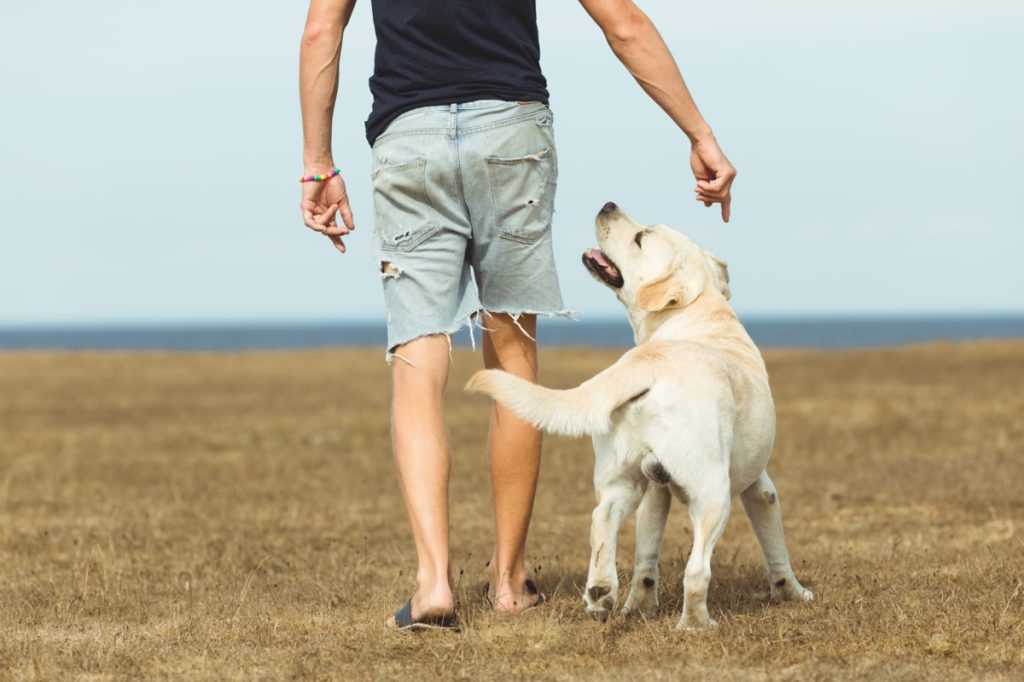
Taking ownership of a dog comes with an ironclad social contract that you will always clean up after it on your walks and in public. Vets point out that it's important to remember that this golden rule certainly still applies to the dog park.
"Another pretty obvious piece of advice for most dog owners, but I've seen too many times—more than I should have, to be honest—is when owners leave their dogs unattended and do not clean after them, which is extremely annoying for other dogs and owners," Kong says. "You should always monitor what your dog is doing in the park at all times, and bring multiple bags to pick up your dog's poop."
8
Never go to the dog park when it's too hot outside.
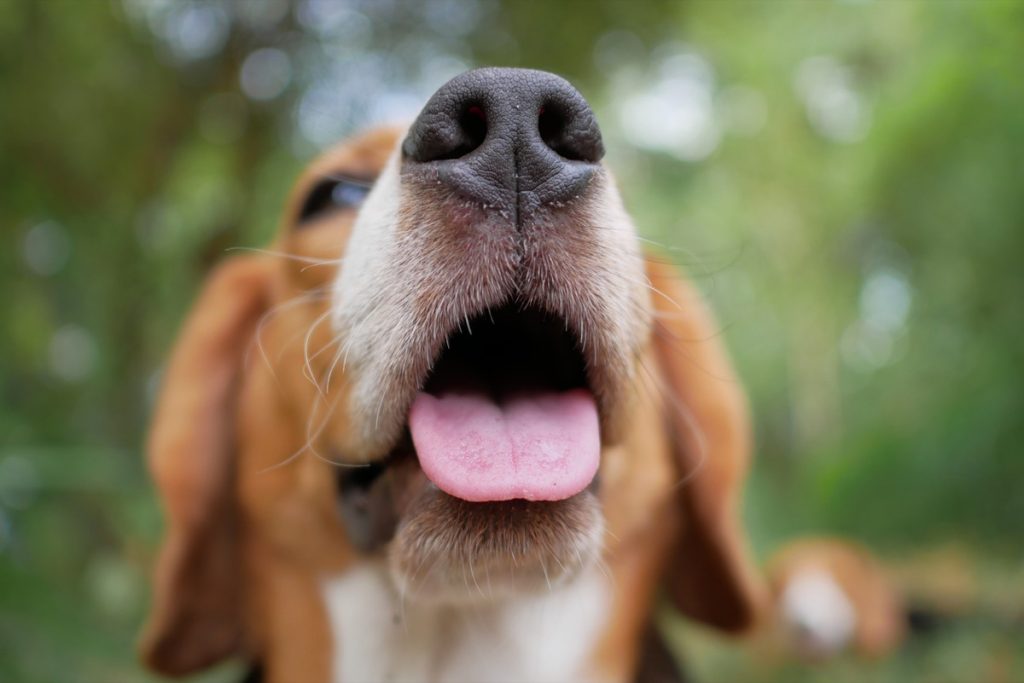
You wouldn't spend an afternoon exercising outdoors during a heatwave, would you? As tempting as it may be after a day cooped up in air conditioning, vets say it's still best to avoid the dog park during heatwaves.
"A dog may be so excited to be running around with fellow canines that they can overheat. This can be a deadly problem," Holmboe cautions.
"Pay attention to how much your dog exercises, and limit it if you see excessive panting or exhaustion. If the temperature is high in general, limit the length of time at the park. Overheating is especially deadly in brachycephalic dog breeds, which are short-snouted breeds such as pugs, bulldogs, and Shih Tzus," he says.

